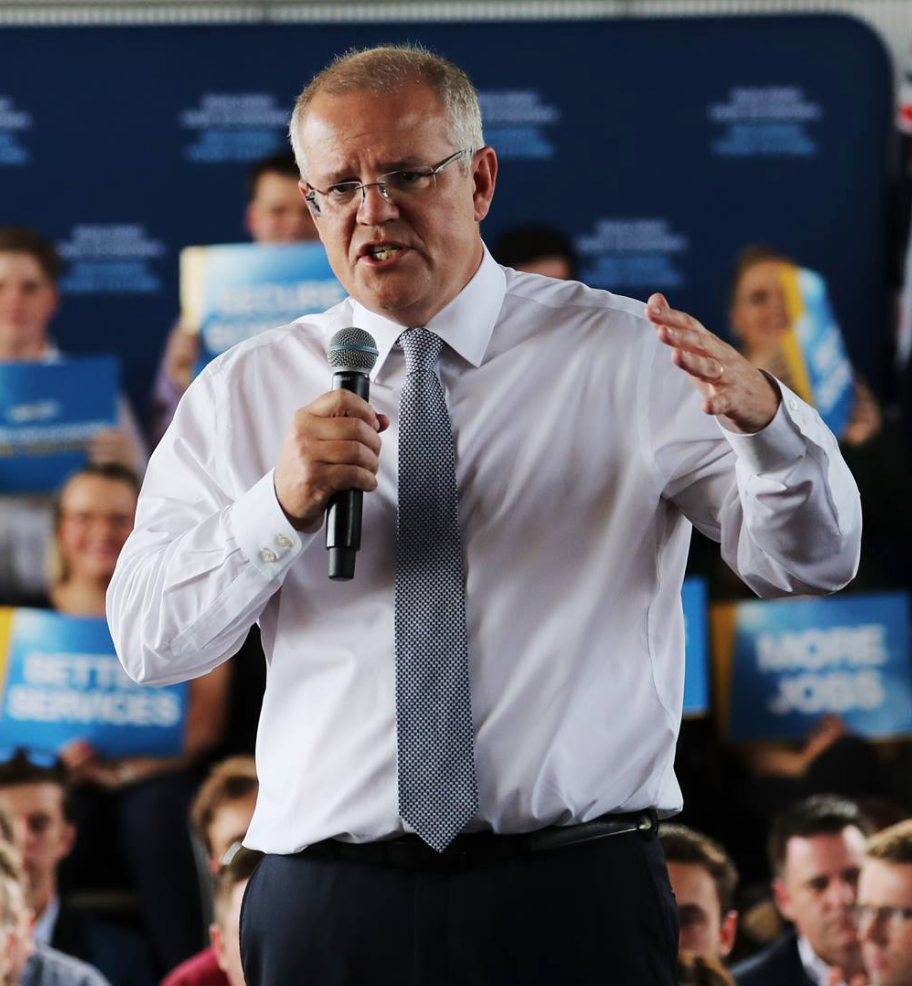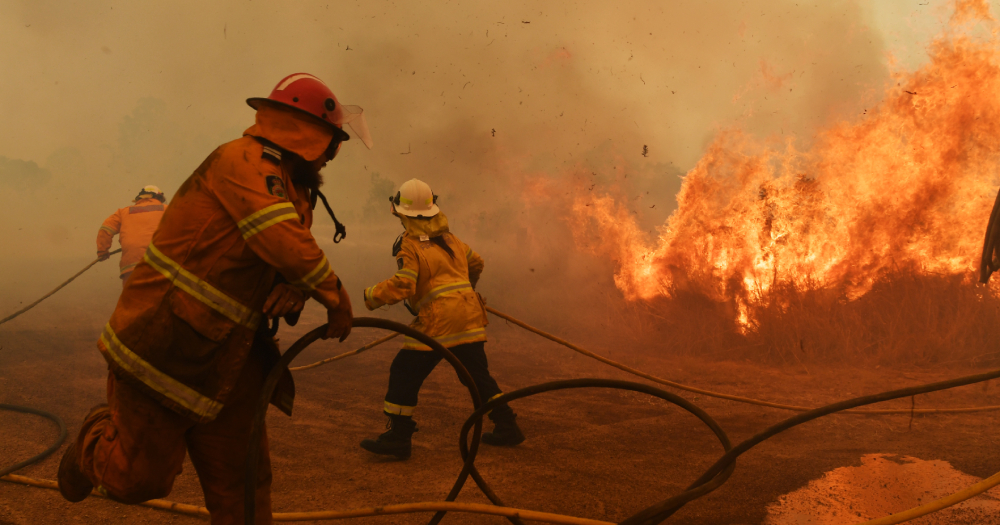While many Singaporeans are taking leave to travel overseas and spend time with their loved ones — a well-deserved break from a year of hard work.
However, in fire-ravaged Australia, many are using their leave in a very different way.
They are instead taking time off work to volunteer as firefighters.
"The world's largest volunteer firefighting organisation"
This includes members of the New South Wales Rural Fire Service (NSW RFS) which the BBC reports calls itself “the world's largest volunteer firefighting organisation”.
Their 70,000-strong membership consists of extensively trained firefighters who, with the exception of a few senior staff, are all unpaid.
According to the BBC, since September, around 3000 firefighters are out in force on any given day, of which 90 per cent are volunteers.
This strategy of relying on large numbers of volunteers is common across NSW, Victoria, South Australia, and Western Australia, where bushfires are typically experienced in the summer months of December to February.
Yet this year, the fires have started much earlier, in September during what is traditionally spring.
In NSW, which has been in a drought for several years, hotter and drier conditions this year have to be a proved conducive circumstance for hundreds of fires to burn simultaneously.
The BBC described the blazes as the size of “small European countries” with three million hectares affected, and 70m-high flames reported.
According to The Straits Times (ST), the amount of bushland in Australia that has been destroyed by the fires is equivalent to more than 35 Singapores.
In response, many Australians have joined the 2,000 or so volunteer brigades mostly found in country or rural towns. Most of the members are locals who are fighting to save their own communities.Some, like Lucy Baranowski and her husband, have taken leave from their day jobs to join the fight.
Speaking to the BBC, Baranowski said that in the absence of income, the couple were making ends meet with their savings, credit cards, and support from friends and family.
A Singaporean also volunteering
ST also reported on a Singaporean student, 22-year-old Mark Yeong, who has also volunteered to battle the blazes.
Amidst studying at the University of Sydney, and holding down a part-time job, Yeong had been committing about three days a week to the firefighting effort.
Yeong told ST that he undertook the training required during his school holidays for about a month, with much of the theoretical aspects taught online.
“The practical side required us to know how to use equipment and such things,” he is quoted as saying.
A touching moment amid the devastation – a firefighter and koala watch on as bushfire tears through the Adelaide Hills. #9News
— 9News Sydney (@9NewsSyd) December 23, 2019
📸: Eden Hills Country Fire Servicehttps://t.co/J8C5b5K6Xh pic.twitter.com/YMSWJAtx5L
A brush with death
He has been volunteering in the field since the end of September and described the heat in the first operation he took part in as “so intense… it felt like my face would melt”.
Yeong also had a close brush with death when on the way to fight a big fire in the Blue Mountains National Park.
As a 20m-tall tree had fallen onto the road, Yeong and his fellow volunteers needed to hack away at it to clear a path for traffic.
While working to clear the road, another burning tree was tipping over.
Luckily, there was enough time to yell at everyone to watch out.
“The tree almost squashed three of us. It landed about 1.5m from where I was standing just seconds earlier,” he told ST.
No compensation for the volunteers
 Photo via Scott Morrison's Facebook page
Photo via Scott Morrison's Facebook page
But while the BBC reports that public support for volunteer firefighters to be at an all-time high, national conversation has coalesced on the topic of providing more support to them.
In particular, pressure has mounted on the Australian government to provide compensation for the volunteers.
However, Australian Prime Minister Scott Morrison has rejected such a course of action.
The ABC, on Dec. 23, reported Morrison as saying that the issue of volunteer compensation was not a priority.
“Right now, the (Fire) Commissioner has reminded me that they need to focus on the operational effort and not be too distracted by those issues at the moment.”
According to The Guardian, when asked about volunteer firefighters who had taken out loans to stay financially afloat, Morrison said that he did not want to be drawn into a knee-jerk reaction.
He explained that the issue had not been raised to him by his advising agencies in relation to the firefighting effort.
“As much as I empathise with those who are going through economic hardship as they fight these fires, at the same time, I’m going to listen to the experts that we’ve entrusted with responsibility of fighting and commanding those forces.”
Morrison did, however, announce on Dec. 24 that public servants taking leave to fight fires would have additional paid leave, according to The Guardian.
The Prime Minister indicated that he was setting a “minimum standard of four weeks” paid leave for people volunteering to fight fires.
Australian policies on climate change
The Prime Minister’s conservative Liberal-National coalition government has also come under criticism for their stance on climate change.
The Guardian also reported Morrison as saying that his government would not increase its efforts to fight climate change despite the bushfires arriving earlier this year on top of a recording-breaking heatwave.
While he said that there was “no argument” about the links “between broader issues of global climate change and weather events around the world”, Morrison also said that it was “not a credible suggestion” to directly connect it with the fires.
In new international rankings released earlier in December, Australia ranked as the sixth-worst nation out of 57 countries.
The Guardian reported that the 2020 Climate Change Performance Index — prepared by a group of thinktanks such as the NewClimate Institute, the Climate Action Network, and Germanwatch — called Morrison’s government a “regressive force”.
“(The Morrison government) has continued to worsen performance at both national and international levels,” the report said.
The report cites the government's continued promotion of the expansion of fossil fuels, while failing to propose any further targets for renewable energy beyond 2020.
Top photo by Sam Mooy/Getty Images
If you like what you read, follow us on Facebook, Instagram, Twitter and Telegram to get the latest updates.
